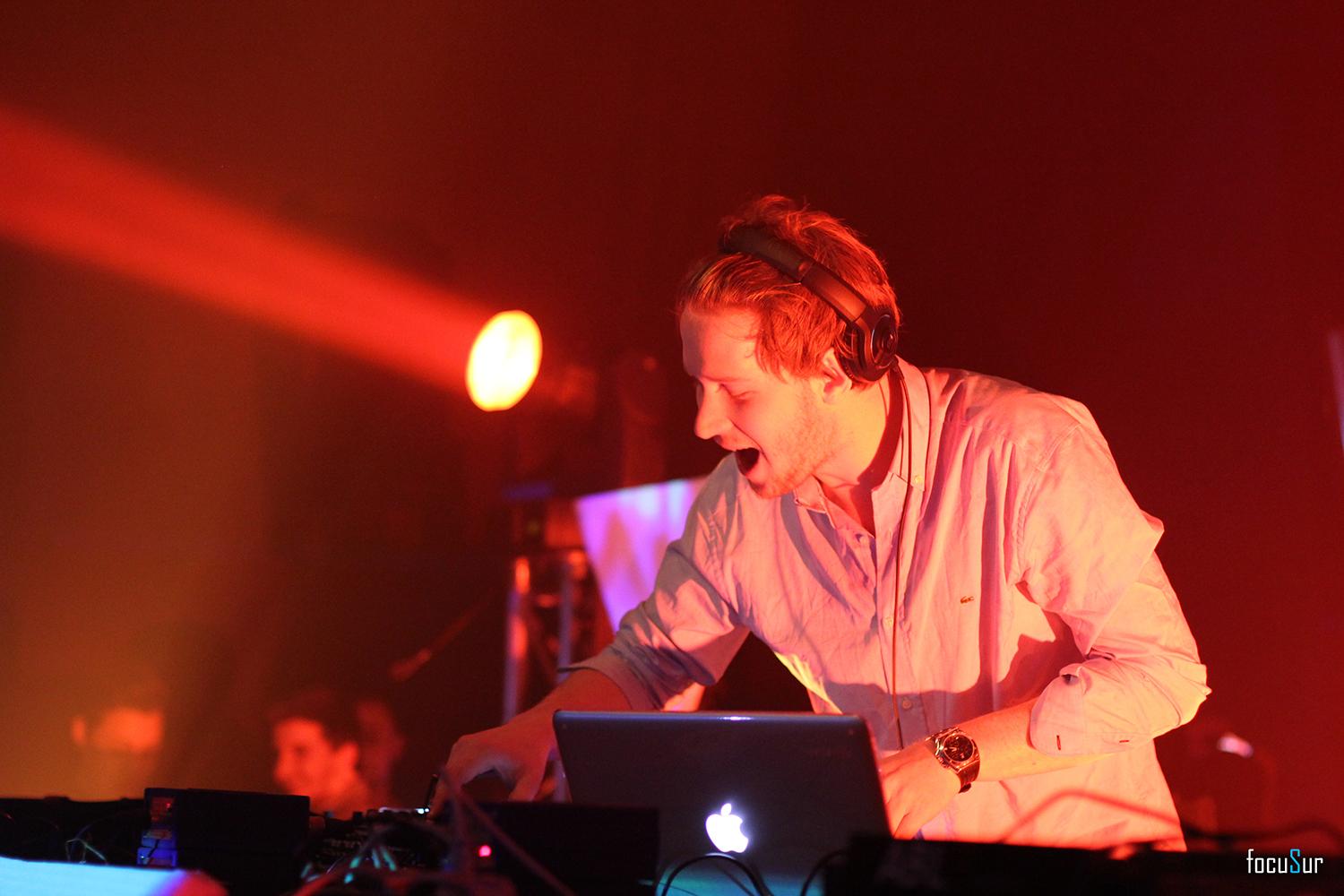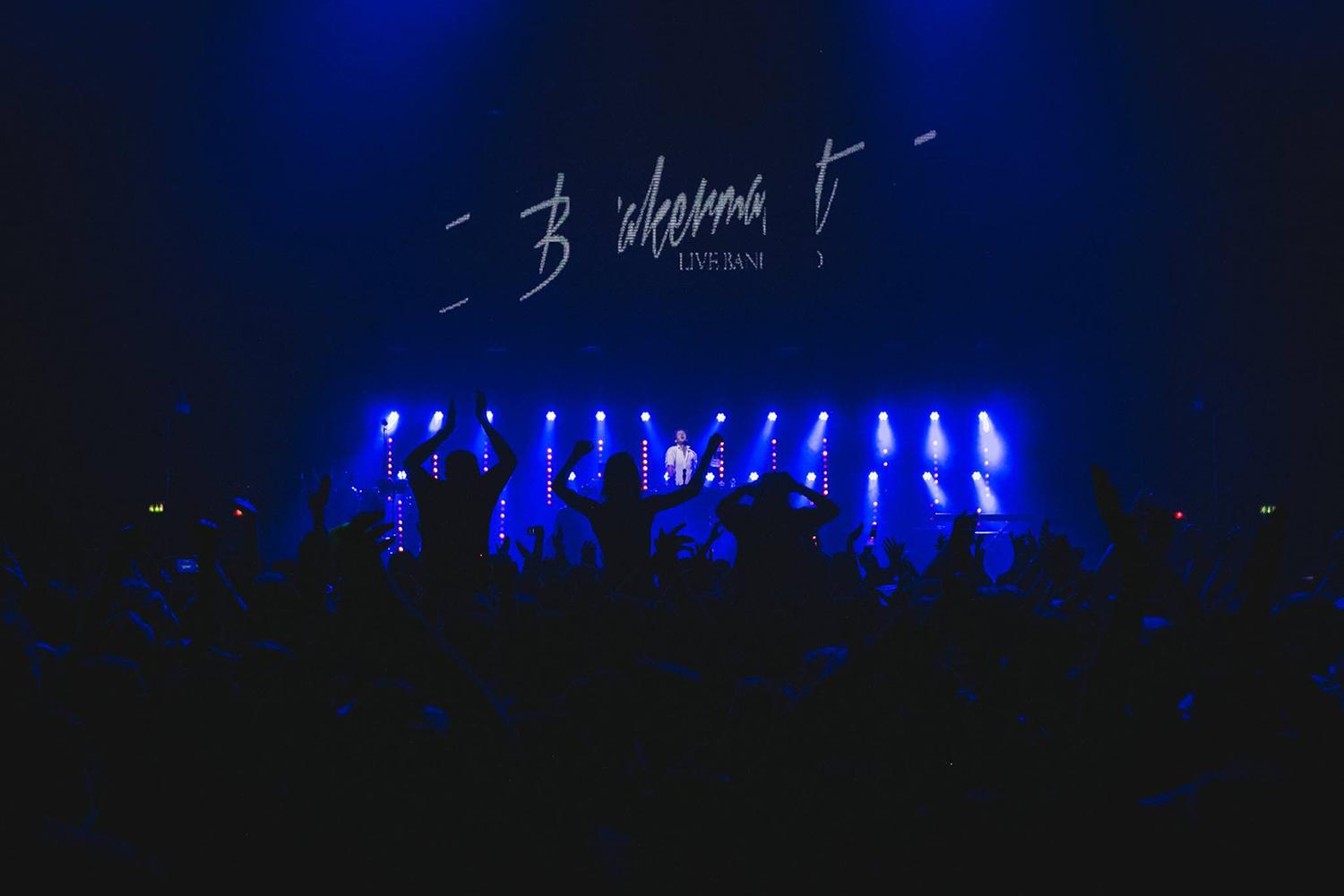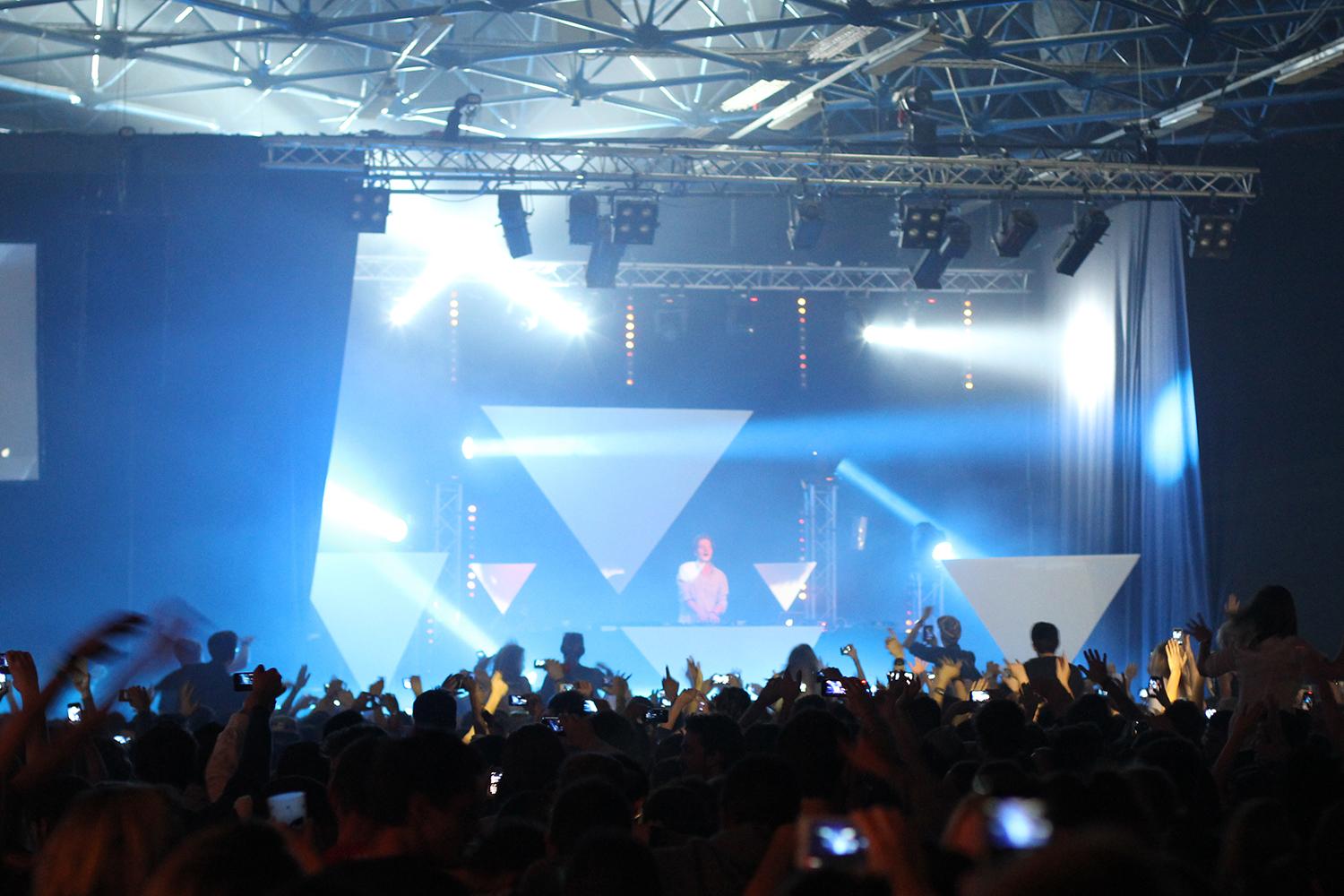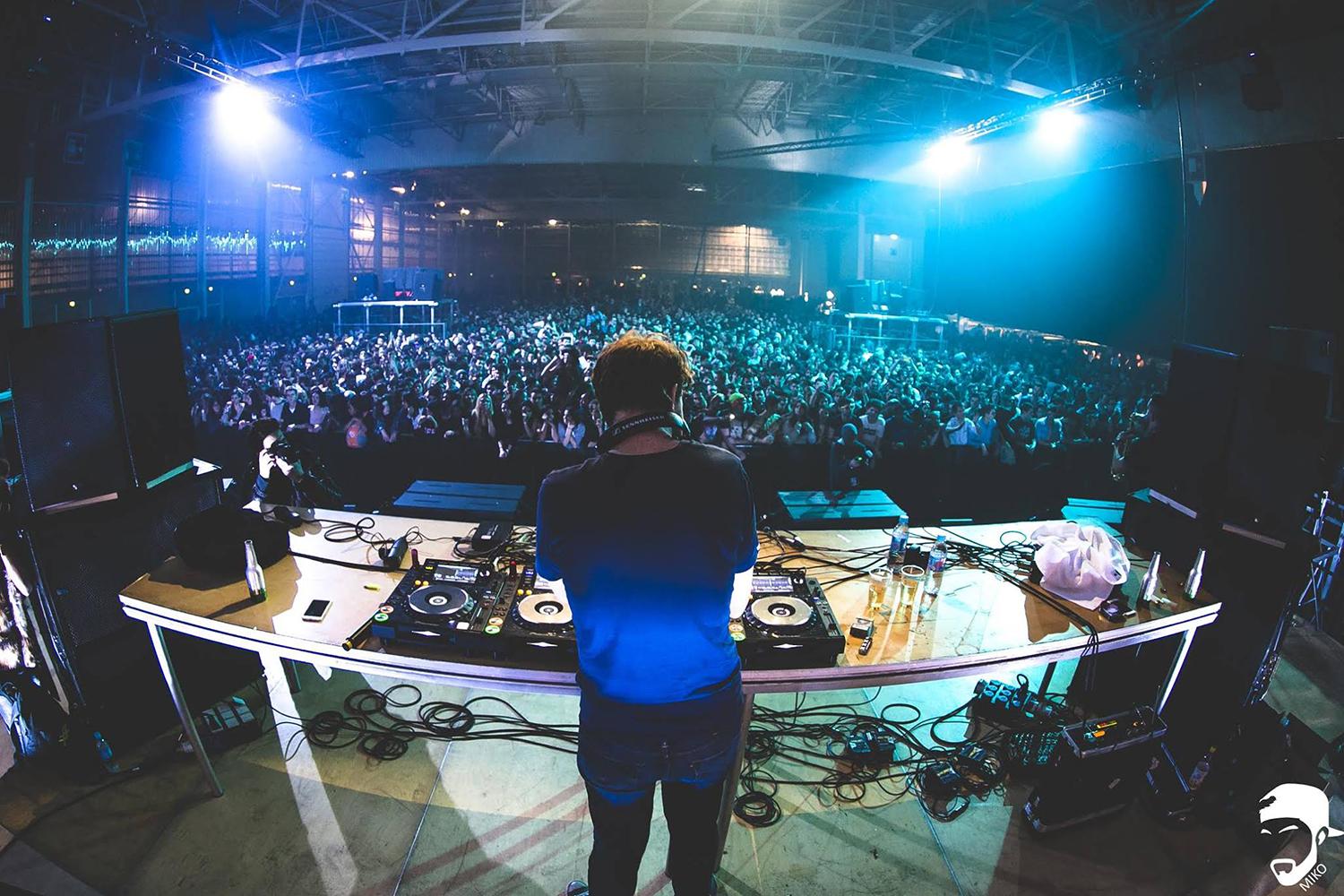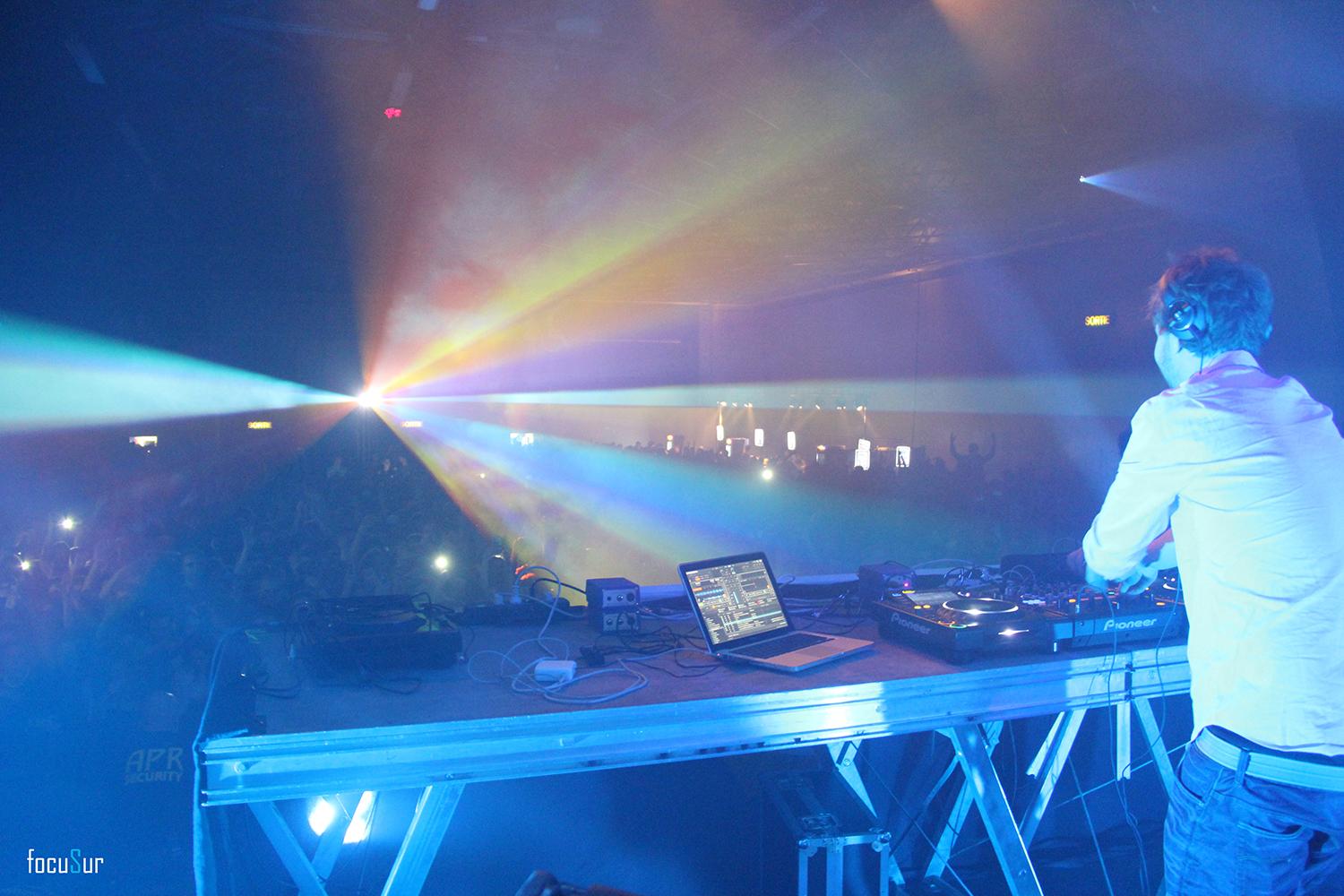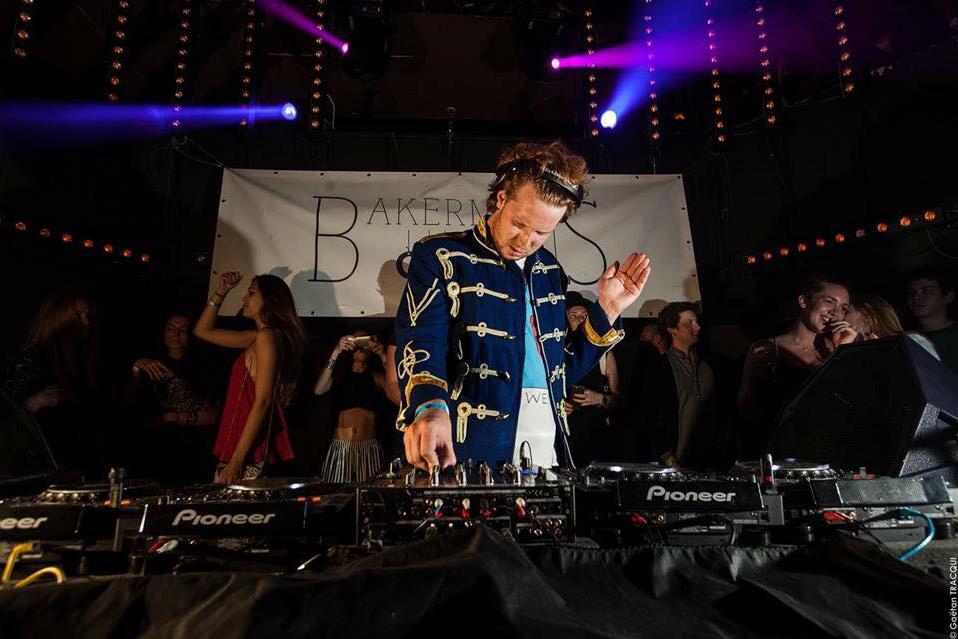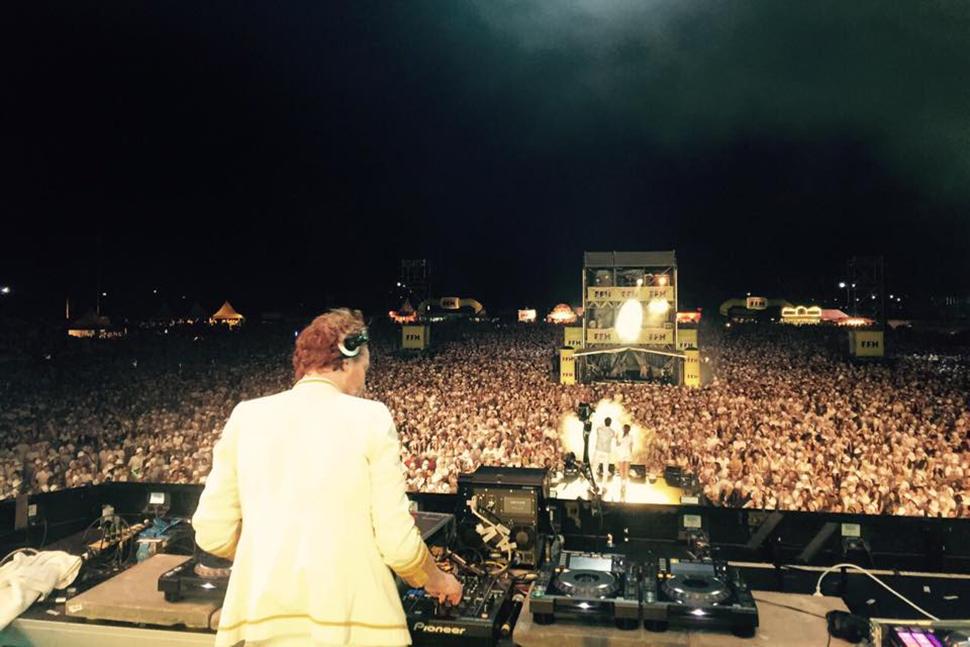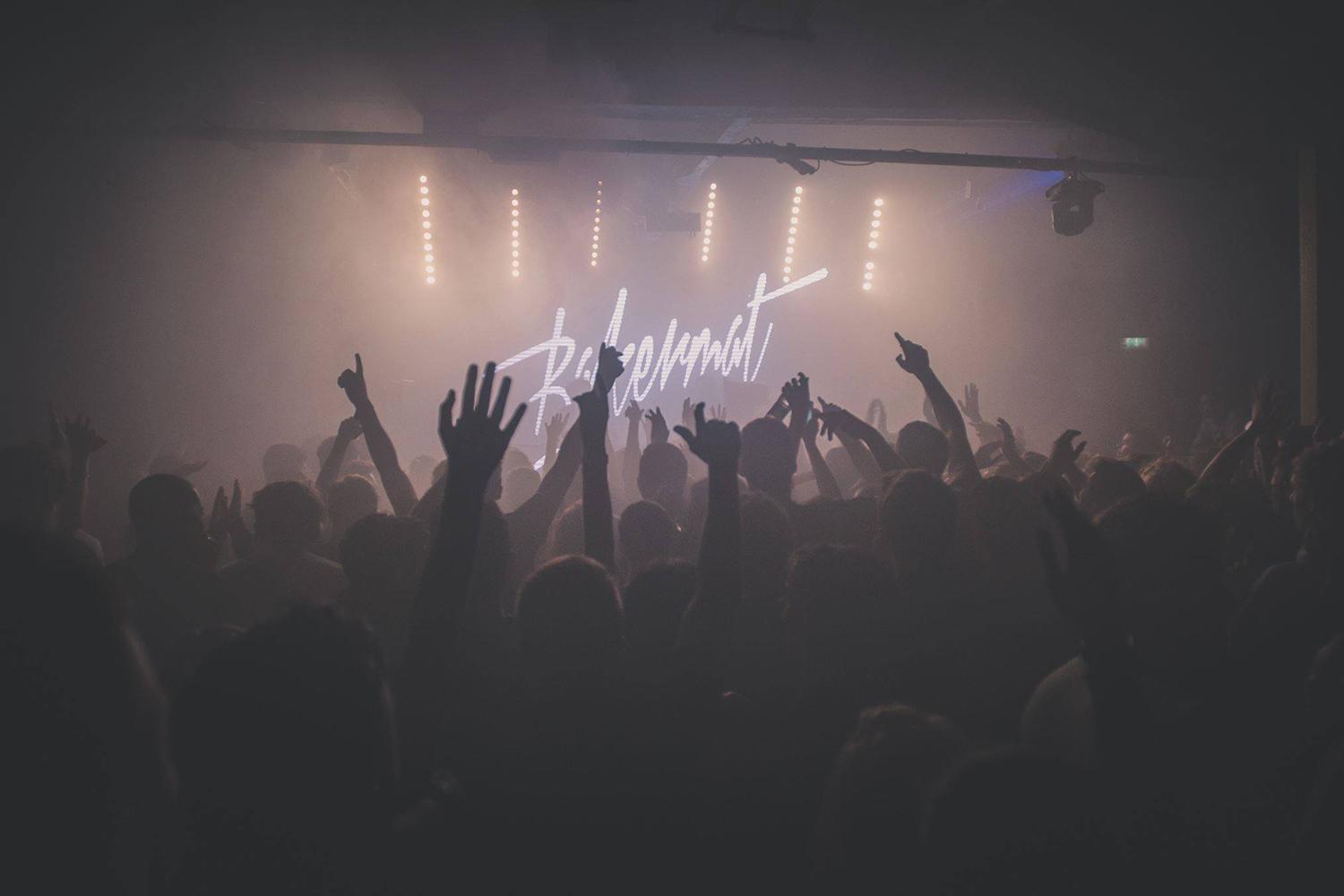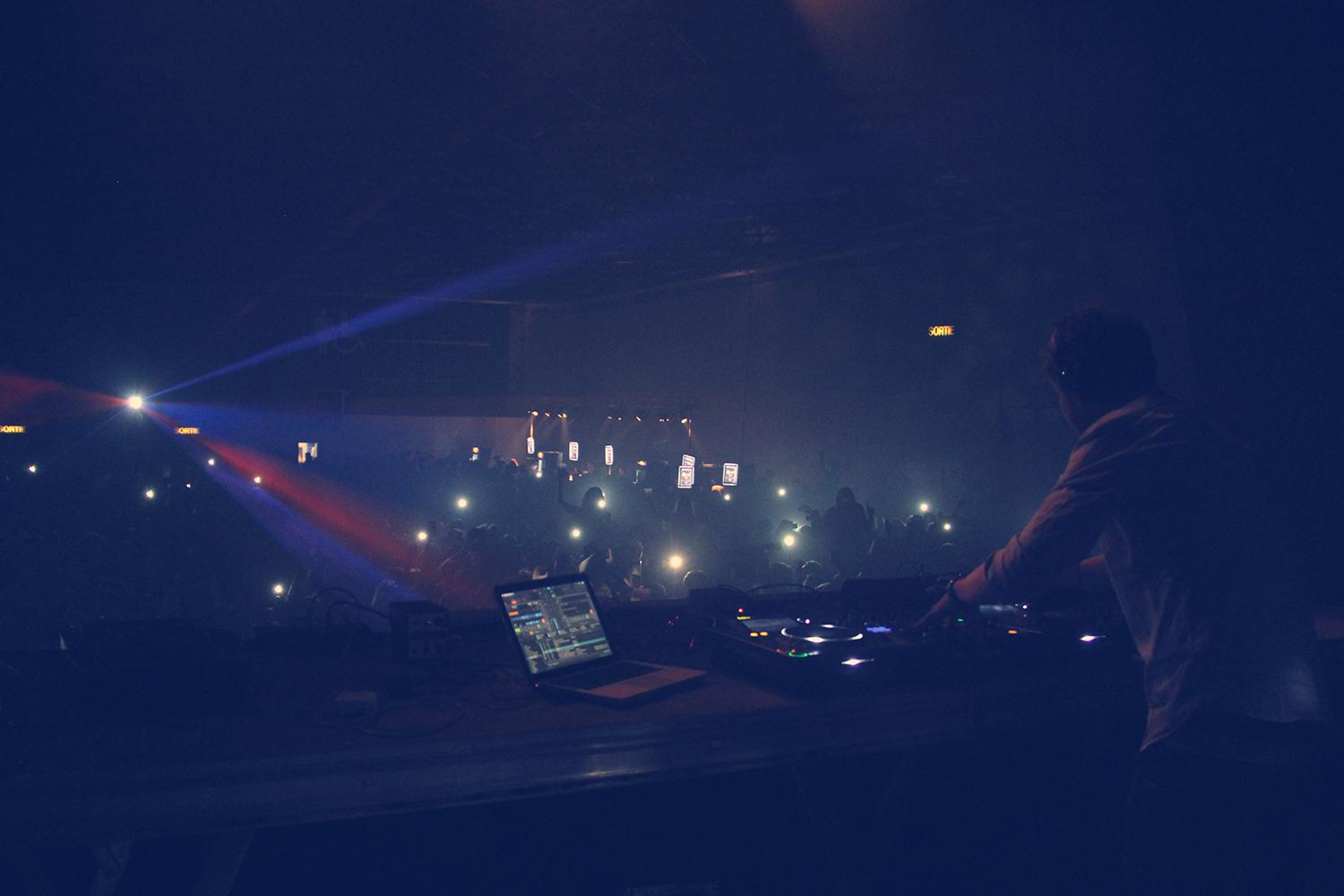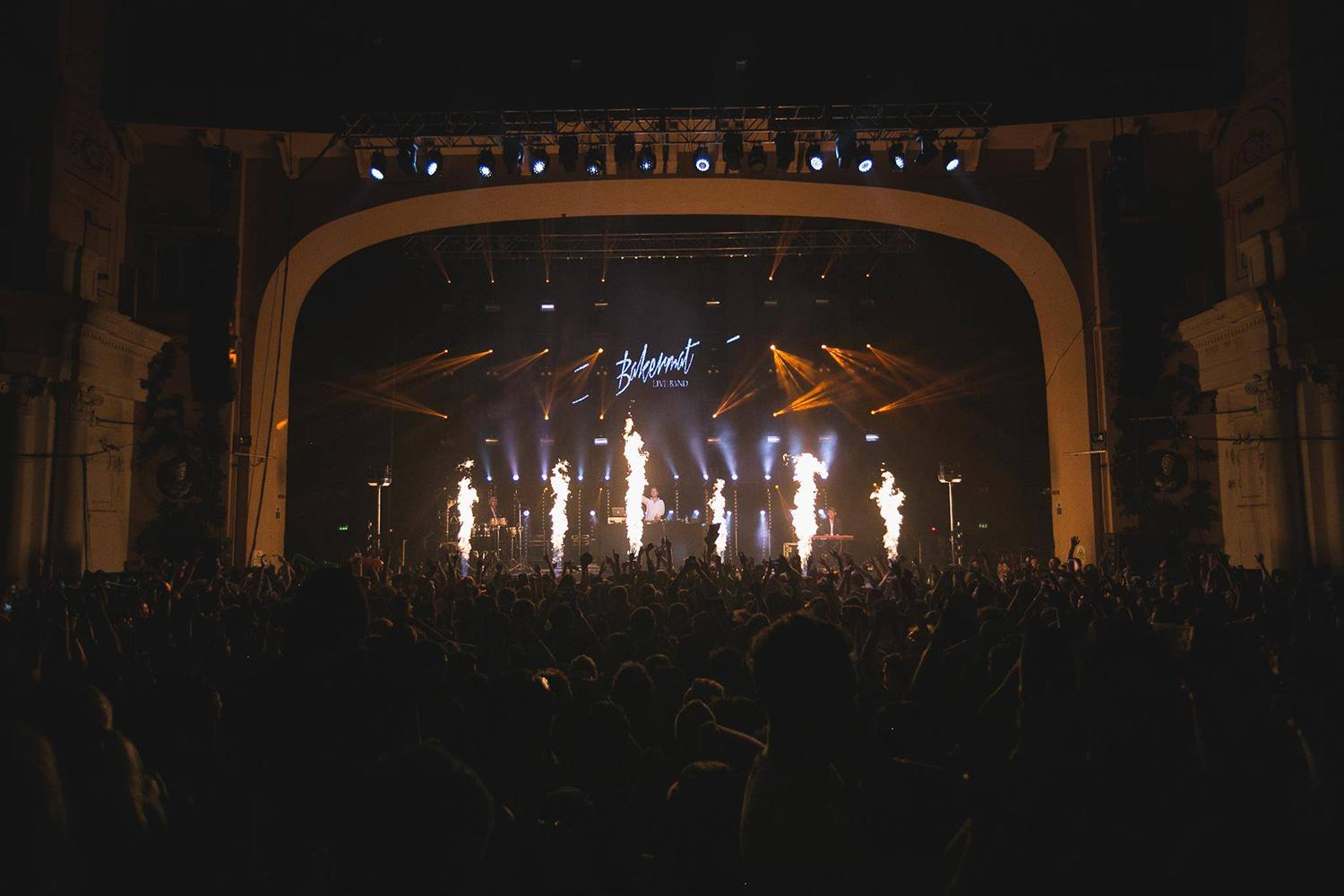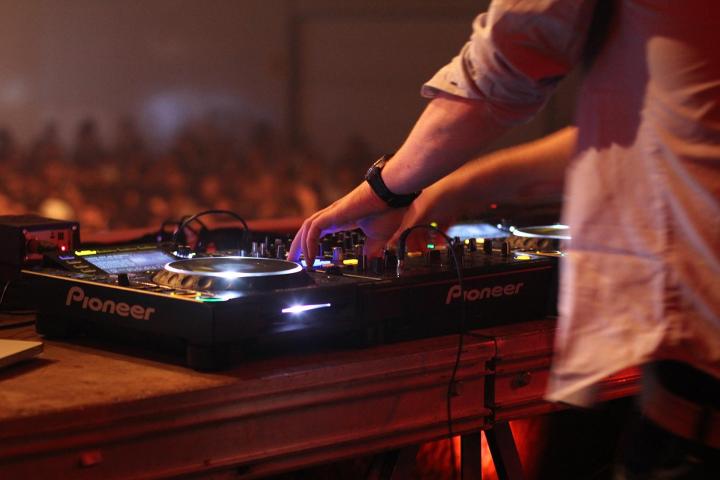
“Doing something unconventional is the key to making new stuff that nobody’s ever heard before.”
It all started with “The Speech.” Bakermat had great respect for Martin Luther King Jr.’s forever hopeful “I Have a Dream” speech that encapsulated the March on Washington in August 1963, and the 23-year-old Dutch DJ wanted to do something to highlight its forever meaningful message in a modern context. From there, One Day (Vandaag) was born — and said message has been quite clearly received, having garnered 17 million views on YouTube (and counting).
“I thought the speech was so beautiful — it’s a piece of music in itself,” Bakermat explains. “It has a number of crescendos, and it’s almost like a classical music piece, you know? I wanted to remix that sample because it is so musical, so I looped it and played some piano chords behind it. When I had the whole progression, I built it up with the speech and made the piano even more intense. But I needed some kind of highlight at the end, so I started experimenting, and that’s how I came up with that saxophone part to be that epic break after the buildup.”
The deep house DJ from the Netherlands (real name: Lodewijk Fluttert) is known for mixing jazz elements and live instrumentation into his sets, whether sporting a full band with him onstage in Europe or just a saxophonist named Ben whenever he spins in the States. Tracks like the gospel-flavored Teach Me and the minimalist, percussive Zomer — whose second half is driven by deft flute and sax interplay — show his flair for turning electronic music convention on its literal ear. Says Bakermat, “To be original, you just do your thing and don’t follow the rules.”
In between jetting across the globe for various festival dates, Bakermat talked to Digital Trends from his Amsterdam homebase to discuss his sonic philosophy, his ear for instrumentation, and why not following convention is an important creative choice.
Digital Trends: I’m a high-resolution audio guy, and I like hearing things in 96/24 — is that how you’re cutting your music?
Bakermat: I always do 24. Personally, I’m not into that so much. I always make very rough versions of tracks I want to make first, before I look at that quality. That’s the last phase for me.
Do you feel people might miss out on something by listening to a track like One Day on MP3, just because there’s so much going on in it?

No, I don’t. Obviously I like WAV files better — every musician does — but anyone who’s not into music doesn’t really care about the quality that much. Yeah, it’s compressed, but you can hear all the elements. OK, it doesn’t pop like you want it to pop, but the basis of my music is the melodies, not the super-beautiful synth sounds that you have to hear in WAV quality, per se.
Why is melody so important to you? Was that something you got into as a kid, something you heard growing up?
Once I got asked the question, “What is your favorite genre of music?” I don’t really have a favorite genre. I could listen to a rock song, a metal song, jazz, pop music, whatever. For me, whatever style it is, it always depends on the chord progression, the lyrics, and the melody used. So I thought, “OK, that’s the most important element for me personally, so I’m going to work on that.”
What songs or albums put that lightbulb on in your head that made you think, “Oh, this is what I want to do”?
Before I started producing? I was into Coleman Hawkins, the great saxophonist, and there was this one album, Bean and the Boys (1946). There are some pretty nice melodies on that album, and I started to think, “I want to make music too, because I’m really enjoying this.”
It’s a funny story. While listening to that album, simultaneously, I was listening to some minimal techno music. And at a certain point, I thought, “Why not combine it?” Because I couldn’t find anything else that combined the two. That’s basically how I got that little plan going on.
“Once I got asked the question, “What is your favorite genre of music?” I don’t really have a favorite genre.”
That’s cool. You can’t really put a genre label on what you do.
Exactly, exactly. I’m really anti-categorization.
What kind of gear do you use in the studio?
I have one Windows computer and one MacBook laptop. I actually use the two of them. I mostly use Ableton studio for the arrangement — the MIDI, and that kind of stuff. I grew up with it and fell in love with it. I just love the software. I think it’s some of the best around.
I also use Ableton for things like samples and warping. It’s way easier, and much better. I found it was a simple software — you have an empty screen, and all the freedom in the world to do whatever you want. Playing with samples, dragging — it’s like a canvas, and I love that about it.
What are your favorite plug-ins these days?
I have to say I love Atmosphere [the dream synth module by Spectrasonics/KVR Audio]. It’s a very big plug-in, so it’s worth it, because it has some very high-quality instruments and synthesizers on there. I also love effects. I use a product from Waves with a really weird name for compression limiting, reverb, delay, and that kind of stuff.
One Day (Vandaag) puts a unique spin on something we’ve heard for so many years, and its message is something someone could be saying about what’s happening today. I mean, are we that much closer than we were 50 years ago?
I read the newspaper, and I see what’s going on in the U.S. right now. I’m not sure what the English word is for that… (pauses) Relevant. It’s relevant right now.
Yeah, it’s sad to say it’s relevant now more than ever. There’s a saying we have for it: One step forward, two steps back. Every time there’s a step toward progress and unity, there always seems to be something that kicks it backward.
Yeah, exactly! I feel that the track has a bit more (pauses) — sorry, sometimes I can’t find the words in English I want to use.
Well, that’s why you make music — it says the words for you.
Yes. Keep it on that. The track says the words for me.
Black Cat John Brown is another great piece. How did that come about?
That’s a remix of Alamo Race Track, actually [the title track to their 2006 album]. It’s a pretty old track, the original one. I saw the guys who were playing it live about five years ago in a crappy and really, really small venue. I was amazed. I thought it was such a good song, but they didn’t release it the way they played it back then. I thought, “OK, this could be better.” It had the right melody, the right lyrics, and the right mood, but I really wanted to make my own version of how the song could be, and in my opinion, better. That’s the story behind it.
What about vinyl? Are you a fan of vinyl?
To collect, yes. I have a vinyl collection at home, but it’s just jazz, soul, and blues music. But to play with — no. It has a great sound, obviously. To play vinyl onstage is not my thing. For me, vinyl is for home listening. To listen to vinyl records at home is awesome! But in a club, the sound quality is going to be that much better when you play the WAV files. I don’t see the big advantage of playing vinyl in clubs or at festivals.
“The first record I heard as a kid? James Brown. That was my first stuff, and I loved it.”
Did you listen to what other people listened to when you were growing up, or did you find your own music? What was the first thing you heard as a kid that really inspired you?
First of all, I grew up in a really, really small town with the Dutch name Markelo [population: 7,000], and everybody was listening to country music. That was the standard. But I didn’t really care. I think I may have been the first guy ever in that town to listen to electro music and dance music.
The first record I heard as a kid? My dad is a great soul and blues fan, so he showed me James Brown. That was my first stuff, and I loved it.
Not a bad place to start.
No, no, not at all.
I had the honor of meeting him many years ago in Las Vegas.
No way!
We had to address him as Mr. Brown, of course, but he deserved the reverence. He brought together genres and even created things that hadn’t ever been done before.
Definitely, man. I’m still a huge fan.
Did it bother you when you were listening to dance music and people gave you a hard time for it, or did you just not care what anyone said?
I wasn’t a rebel or anything, but it’s about the power of music. I did care about a lot of things, but I didn’t wear “weird” clothes. I was normal, actually. The music, I couldn’t resist. I had to listen to that kind of stuff. I hated the country stuff, and I didn’t care that people would say bad things about dance music, because I really wanted to listen to those records.
At what point do you say, “I like listening to it, but now I want to make music on my own”?
When I was 16, I wanted it, but I couldn’t do it. I messed around in my room with some beginner’s software. When I was in college [at the University of Utrecht], I got really bored one semester and I downloaded the first software I saw, which was FL Studio. I didn’t have anything to do and I had a bit of knowledge from back in the days, so I figured, “Let’s make a song.” And I finished a song in my first week.
And that song turned out to be a pretty big one for you, didn’t it?
Yes, it was Zomer [which is Dutch for Summer]. That was the one with the flute. Actually, friends told me to put it online, and it started rolling. People emailed me about it. I thought it was a very minimal track, but it was refreshing because people were maybe sick of the dance music released back then [in 2012].
It’s one of those songs that cuts through the “sameness.” You need a little bit of originality to push the envelope.
“I actually have an album done, and it’s coming in September, I think.”
Yeah, and I think the reason why the track was very refreshing was because I never did any music education, or take any course. I just figured it out, and didn’t listen to too much other stuff. That’s the best kind of stuff, to be original — you just do your thing, and don’t follow the rules.
Sometimes the best creators are the ones who don’t know the conventions. Don’t think too much about it — just do it.
Yeah yeah, that’s kind of my philosophy. If someone wants to make very, very original music that no one has ever heard before, you shouldn’t know anything about music. It just narrows you down, you know?
I do. And in a sense, music is in all of us to begin with. The first thing you hear is a human heartbeat. We’re already conditioned to a certain kind of rhythm, naturally.
That’s pretty interesting. I’ve never heard that before.
Everybody has a running soundtrack in their own head, whether they realize it or not. It’s just a matter of how you express it, if you’re interested in doing so. And in your case, you gravitated toward software. Was there ever any thought of picking up a guitar or a saxophone yourself and playing an instrument?
I did play the saxophone when I was younger for about four years, but I was a very lazy kid and didn’t have the determination. I also played piano, and the piano still comes in handy. But I still don’t know chords. If you said to me, “Play that chord right now,” I wouldn’t know what to do.
In the spirit of what we’re saying here, you kind of know exactly what to do by not knowing those chord structures and following those conventions.
Doing something unconventional is the key to making new stuff that nobody’s ever heard before.
Yeah, that’s totally the key. So, do you have new stuff coming? Will there be a new album anytime soon?
Yeah, I actually have an album done, and it’s coming in September, I think. There’s a new single and some remixes coming out this summer. It’s coming out this year, and I’m pretty excited.
Anything you can sneak preview for us?
It’s pretty diverse. I have some downbeat stuff on there, like 100 BPM. I have one song that’s a ballad — just piano with a girl singing on it. It’s still Bakermat, but I’m experimenting a little. And that’s the great thing about doing an album, you know.
I like how you’re always doing something interesting with vocals in your mixes.
Yeah. On the album, I have some pretty interesting vocals. I have one with a girl I met in Paris, very random. I just met her there. She said she was a singer, so I said, “Sing something for me.” I think she is the best undiscovered singer in Europe right now.
Can you say who that singer is, or what the album title is yet?
No, not yet. I’m still working on that.
